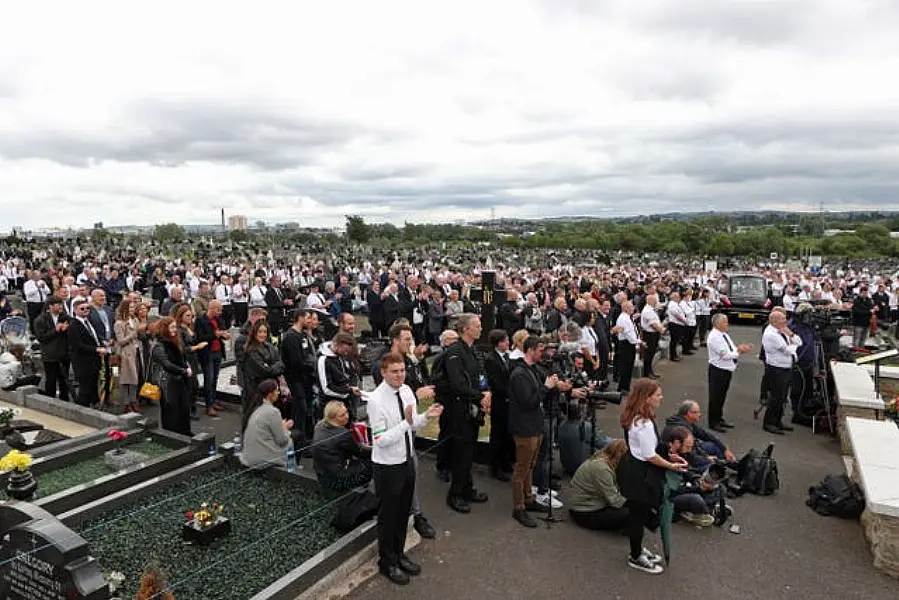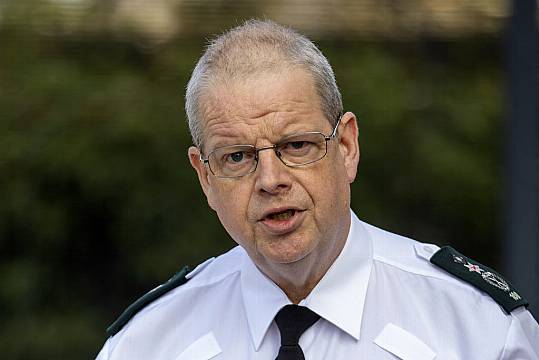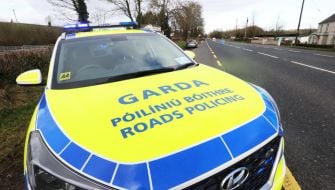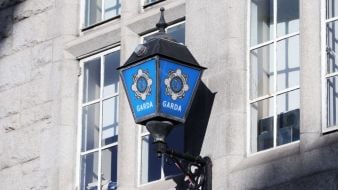Northern Ireland’s police chief has stood by an investigation into allegations of breaches of the coronavirus regulations at the funeral of a senior republican.
Deputy First Minister Michelle O’Neill was among 24 questioned over attendance at the funeral of Bobby Storey in west Belfast last year, where crowds gathered despite rules against large public gatherings.
The North's Public Prosecution Service said the evidential test for prosecution is not met against any of the individuals reported in connection with the Storey funeral.

The North's First Minister Arlene Foster criticised the actions of police around the funeral and called on PSNI Chief Constable Simon Byrne to resign.
Mr Byrne said he will not quit and stood by police actions.
“I was employed to do a job here in terms of managing a large complex organisation, sometimes decisions don’t go the way that people want but if I stand aside it actually undermines whoever comes after me because public servants need to be held to account yes, but every time something doesn’t go in the way of somebody’s point of view if we have to resign there is no continuity and it undermines and is unwarranted in terms of the constant attacks on public servants,” he said.
“I stand behind the actions of the senior officers in the planning of this operation, it was entirely consistent with our training and good practise and indeed were I to go, it would undermine our future planning at any event like this because we’re trained to engage and to encourage people’s behaviour.
“We have to hear the voice of the unionist community but we’re here to police impartially, we did that in the run up to the funeral, during the funeral and in the investigation.”
Mr Byrne said the decision of the PPS “does not change our view that what happened last summer when large numbers of people chose not to stay at home at the height of a pandemic was un necessary, irresponsible and insensitive”.
“It was wrong,” he added.
However, the PSNI chief insisted that using force to prevent the funeral was “never going to work” or “justified or proportionate”.
Mr Byrne also said he wanted to make it clear that while police did engage with the organisers, no deals were done.
“We did not turn a blind eye,” he said.
“Whilst we note that the PPS conclude that this tried and tested approach, entirely consistent with national police practise, could have afforded a reasonable excuse to prominent attendees, it is also clear that overall the prosecution outcome would not have been different even if our approach had been given the complexities in the regulations at the time.”

Assistant Chief Constable Alan Todd said officers will examine the PPS report and learn any lessons they can.
“We have had the PPS and their lawyers being able to consider the regulations that were in force for three or four months and to give a very defined position on something we had to consider and plan for in two to three days,” he said.
“So clearly there will be things come out of the PPS report today that we would build into our planning going forward for any future events, and it would be wrong of me to say we wouldn’t learn those lessons.”







